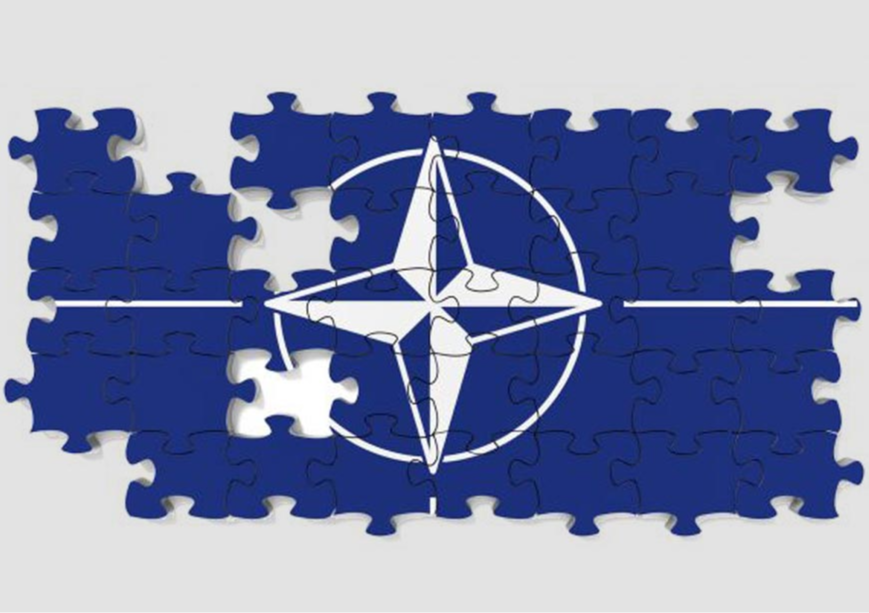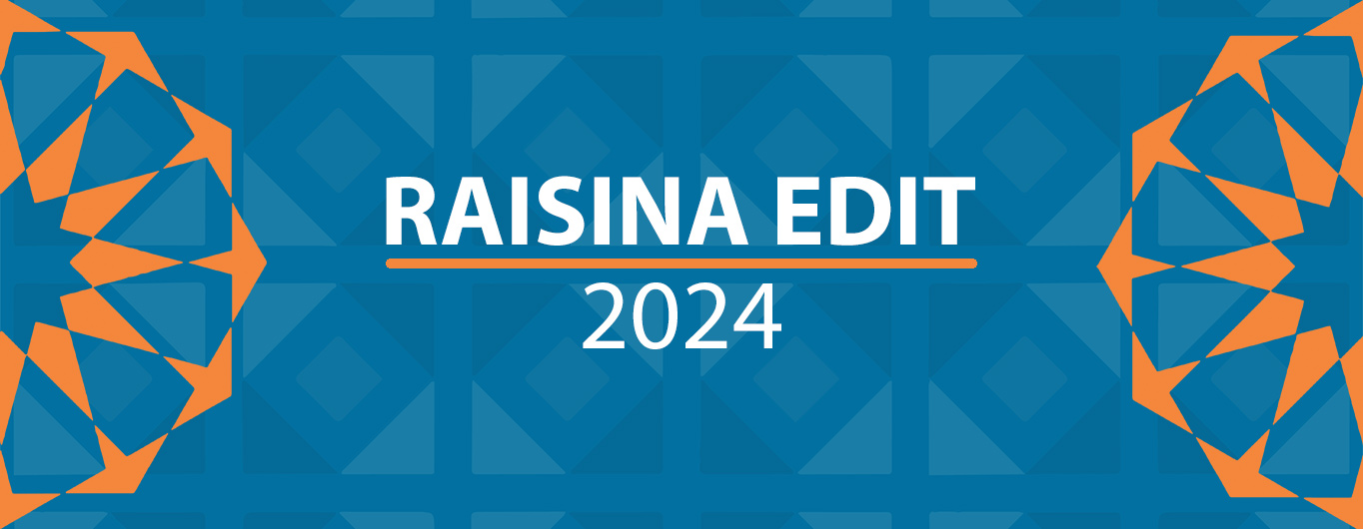
Source Image: Depositphotos
As underlined by Jens Stoltenberg during the Raisina Dialogue 2021, the importance of strengthening NATO’s global partnerships has only grown, not least in the Indo-Pacific region, as we face a more complex and interconnected world. Since then, NATO’s security environment has only become more competitive, dangerous, and unpredictable.
The return of full-scale conflict in Europe and rising tensions in the Indo-Pacific region demonstrate that our security is not regional, it is global. Russia’s illegal war of aggression against a sovereign nation, Ukraine, affects all of us who believe in freedom and democracy. China’s increasingly oppressive actions at home and coercive behaviour abroad threaten our security, values, and interests.
Russia’s illegal war of aggression against a sovereign nation, Ukraine, affects all of us who believe in freedom and democracy.
India is the world’s largest democracy, a growing economy, and an important global power. As the NATO Secretary General said at Raisina, the time is right to take NATO’s dialogue with India to a new level, to defend our shared values and the rules-based international order.
An inflection point in history
For almost 75 years, NATO has brought together Europe and North America to ensure the collective defence and security of its allies on both sides of the Atlantic, and to promote peace and stability beyond its borders. The Alliance has grown from 12 founding members in 1949 to represent 31, soon 32 nations, and one billion people.
Today, we face the most dangerous security environment since the end of the Second World War. Russia’s war of aggression against Ukraine has shattered decades of peace in Europe. It has also had severe global consequences, unleashing a global food and energy crisis, causing immense environmental and economic damage, and global instability.
Moscow’s bombing campaigns and relentless attacks on civilians and civilian infrastructure show a total disregard for human life. Russia’s blatant violations of international law and the United Nations (UN) Charter threaten the entire world. They are a fundamental attack on the principles of sovereignty, territorial integrity, and self-determination that underpin the international order, and ensure international peace and security.
While NATO is not a party to the conflict, it is significantly enhancing its own deterrence and defence to ensure that the war does not escalate beyond Ukraine’s borders.
NATO is responding with strength and unity. While NATO is not a party to the conflict, it is significantly enhancing its own deterrence and defence to ensure that the war does not escalate beyond Ukraine’s borders. At the Vilnius Summit in July, Allies agreed to a further fundamental shift in our deterrence and defence, building on a decisive decade of adaptation since Russia illegally annexed Crimea and entered eastern Donbas in 2014. Concretely, this means more troops on high readiness, the most comprehensive and robust defence plans since the Cold War, increased investment in defence, and closer cooperation with the defence industry to increase production for Ukraine’s defences and for ours.
At the same time, NATO Allies are radically stepping up their support to Ukraine in line with the UN Charter, with unprecedented military, financial, and humanitarian assistance. Through NATO, they are also providing essential non-lethal support to help Ukraine sustain its fight for freedom in the short term, and strengthen its security and defence sector for the long term. They have enhanced their political relations through a new NATO-Ukraine Council, where they meet as equals to consult during crises and to take common decisions. At the Vilnius Summit, Allies agreed on a clear vision for Ukraine’s future as a member of NATO. They also agreed to step up their support for other partners facing hostile interference and coercion from Russia, including Bosnia and Herzegovina, Georgia, and Moldova.
NATO Allies are radically stepping up their support to Ukraine in line with the UN Charter, with unprecedented military, financial, and humanitarian assistance.
Security is global, not regional
How we respond to Russia’s war of aggression and blatant violations of international law will define global security for generations to come. If Russian President Vladimir Putin wins in Ukraine, it will send a message to other authoritarian regimes, not least in Beijing, that they can get what they want through force and that makes the world much more dangerous.
NATO does not see China as an adversary. However, China’s stated ambitions and coercive policies, including in the Indo-Pacific region, challenge our interests, security, and values. China is seeking to subvert the rules-based international order, including in the space, cyber, and maritime domains. NATO is concerned about China’s attempts to create dependencies and control critical infrastructure and strategic resources, including in its allied countries. The deepening strategic partnership between Beijing and Moscow, and their attempts to undermine the global order, concern all. As a permanent member of the UN Security Council, China should use its considerable influence to urge Russia to end the war in Ukraine and refrain from providing lethal aid. As Indian Prime Minister Narendra Modi has said, this is not an era for war.
Combined with this growing strategic competition, our broader strategic environment is characterised by persistent fragility and recurring shocks. Terrorism is the most direct asymmetric threat to our security, international peace, and prosperity. We also face instability and crises, particularly in NATO’s southern neighbourhood, which has deep roots, and multiple demographic, economic, and political drivers, including the existential challenge of climate change, fragile institutions, health emergencies, and food insecurity. Other threats and challenges to our security are multiplying, from cyber and hybrid attacks to nuclear proliferation, disruptive technologies, and global pandemics.
NATO is concerned about China’s attempts to create dependencies and control critical infrastructure and strategic resources, including in its allied countries.
No country or continent can face these challenges alone. Global challenges require a global response. And that is why NATO is committed to working more closely with partners near and far, including in the Indo-Pacific region.
Euro-Atlantic and Indo-Pacific security are closely linked
NATO is adapting to this new security reality, as we have always done. In 2022, NATO leaders adopted a new “Strategic Concept”— it’s a blueprint for responding to a world of growing strategic competition and instability. This Concept reaffirms NATO’s key purpose — ensuring our collective defence. It reiterates NATO’s three core tasks: deterring and defending against all threats, strengthening our ability to manage and prevent crises, and investing in cooperative security together with our partners, including in the Indo-Pacific.
The Indo-Pacific region is home to approximately 65 percent of the global population and some of the world’s largest and fastest-growing economies. Europe and the Indo-Pacific account for over 70 percent of global trade and 60 percent of foreign direct investment flows. Many NATO Allies and the European Union (EU) have close ties and presence in the region. Its economies are deeply intertwined, and so is its security. A free and open Indo-Pacific is essential to global prosperity and stability.
The South China Sea is a major transit route for global trade. Taiwan is the most important producer of semiconductors on which modern technologies depend. Any attempt to change the status quo in the South China Sea by force would have devastating economic and security consequences. The region presents other major challenges as well. NATO is deeply concerned about North Korea’s provocative behaviour, including its nuclear activity and ballistic missile programmes, which violate multiple UN Security Council Resolutions and pose a serious risk to regional and global security.
Europe and the Indo-Pacific account for over 70 percent of global trade and 60 percent of foreign direct investment flows.
It may be oceans apart, but NATO and its Indo-Pacific partners face the same challenges and share the same values and vision of a free and open rules-based international order. That is why NATO leaders welcomed their counterparts from Australia, Japan, New Zealand, and South Korea—its partners in the Indo-Pacific region—to the last two NATO Summits in Madrid and Vilnius. We are also strengthening our political and practical cooperation, including in cyber defence, maritime security, and new technologies.
Taking the NATO-India dialogue forward
India is the world’s largest democracy, the fastest-growing major economy, and an important global actor. It is the fifth-largest UN peacekeeping troop contributor, and it takes its role on the world’s centre stage seriously, as was seen during its G20 presidency in 2023. Together, NATO and India represent almost 2.4 billion people—30 percent of the global population.
NATO is and will remain a regional alliance for Europe and North America, but it has a robust network of partners worldwide and fruitful dialogue with countries like India. Despite not having a formal partnership with NATO, over the years, it has continued to engage with India.
NATO is interested in enhancing its dialogue with India to defend our common values and increase our practical and concrete cooperation, while fully respecting India’s foreign policy positions. For NATO, deeper dialogue with India would enrich its existing partnerships in the Indo-Pacific region. By increasing its exchanges with NATO, India would complement the deepening bilateral and multilateral relationships it already has with several NATO Allies and the EU.
NATO is and will remain a regional alliance for Europe and North America, but it has a robust network of partners worldwide and fruitful dialogue with countries like India.
NATO and India share the same values—freedom, democracy, sovereignty, territorial integrity, human rights, international law, and the peaceful settlement of disputes. We share a common vision of a free and open Indo-Pacific. There is huge potential to strengthen cooperation in tackling shared challenges, including authoritarian threats to the rules-based order, terrorism, new technologies, maritime security, cyber defence, and climate change.
Working together, NATO and India can be a powerful force for good, contributing to a peaceful, free, and democratic world.
Krisztian Meszaros is Director for Partnerships and Global Affairs, NATO International Staff
The views expressed above belong to the author(s). ORF research and analyses now available on Telegram! Click here to access our curated content — blogs, longforms and interviews.




 PREV
PREV



